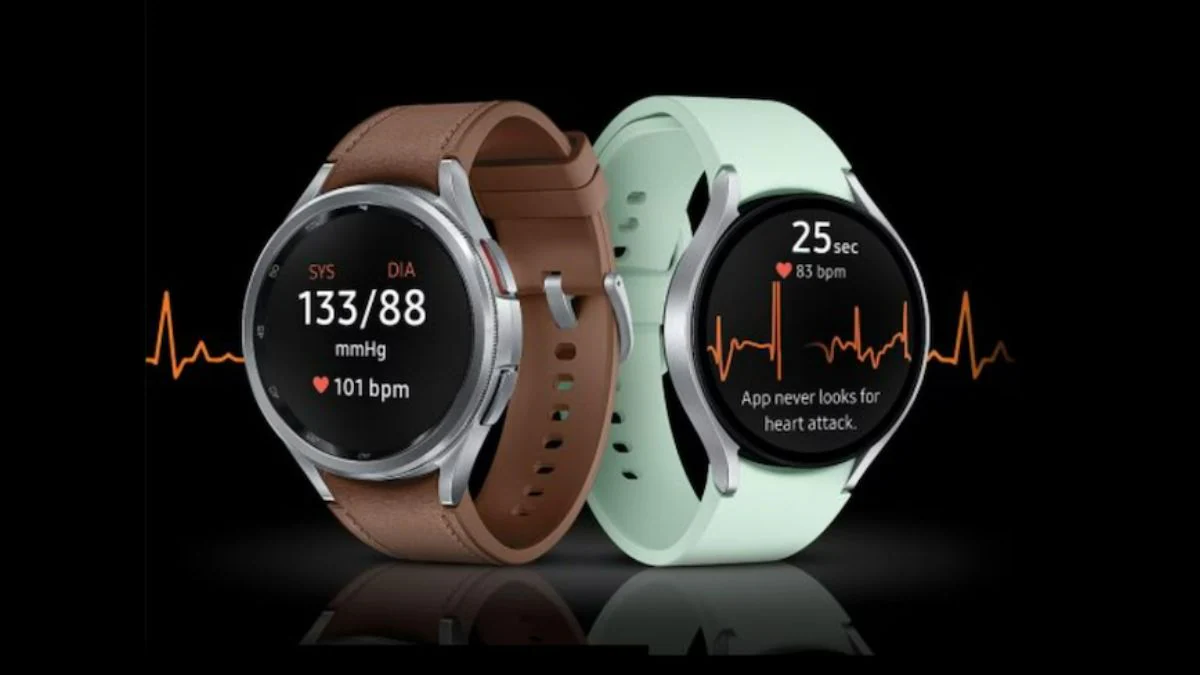Rumors about a potentially ground-breaking health feature, the AGEs (advanced glycation end products) Index, have caused a great deal of enthusiasm about Samsung’s upcoming Galaxy Watch 7. According to AGE buildup in the body, this possible feature—which Android Authority just discovered after a thorough analysis of the most recent Samsung Health app update—is designed to provide users with predicted insights regarding their risk of age-related ailments.
Glycation is the process by which carbohydrates combine with lipids and proteins to generate molecules known as AGEs. These substances build up in different tissues as people age, which plays a role in age-related illnesses such diabetes, heart disease, stroke, and kidney failure. Non-invasively measuring AGEs levels could offer important new perspectives on how the body ages and possible health hazards without requiring conventional blood or tissue samples.

The idea of AGEs detection being integrated into wearable technology, such as the Galaxy Watch 7, is a major breakthrough in the realm of health monitoring. The inclusion of the AGEs Index under the experimental “Labs” section of the Samsung Health app implies continued development and testing, even though exact details surrounding the incorporation of new sensors in the wristwatch series are still hypothetical. With this certification, it is implied that Samsung is continuously improving the function to guarantee its correctness, dependability, and usefulness in daily life.

Scientific research supports the feasibility of non-invasive AGEs monitoring through wearable devices. Some AGEs exhibit fluorescent properties and a yellow-brown color, characteristics that enable their detection via specialized sensors. If Samsung successfully incorporates this capability into the Galaxy Watch 7, users could potentially access continuous, real-time data about their AGEs levels, empowering them to take proactive steps towards managing their health and mitigating age-related risks.
However, the introduction of advanced health monitoring features such as AGEs detection also presents challenges. Ensuring the accuracy and reliability of AGEs measurements is crucial for user trust and regulatory compliance. Samsung would likely need to conduct extensive clinical studies to validate the effectiveness of AGEs monitoring and address privacy concerns associated with sensitive health data stored on wearable devices.
Monitoring AGEs may have consequences that go beyond managing a person’s health. Wearable technology, such as the Galaxy Watch 7, has the potential to provide important data for public health efforts and healthcare research by offering insights into age-related illness trends and risk factors at the individual and population levels. Preventive measures, early intervention techniques, and individualized healthcare programs based on each patient’s unique health profile could all benefit from this data.
As Samsung prepares to unveil the Galaxy Watch 7 series, anticipation is mounting among tech enthusiasts and healthcare professionals alike. The integration of advanced health monitoring features underscores the evolving role of wearable technology in promoting personalized healthcare solutions. By equipping users with actionable insights into their physiological aging processes, Samsung aims to empower individuals to make informed decisions about their health and well-being.

Samsung may be at the forefront of wearable health innovation thanks to the potential advantages of AGEs monitoring. The Galaxy Watch 7 series could revolutionize how consumers engage with their health data by going beyond conventional fitness monitoring features and putting more of an emphasis on proactive health management techniques and preventive healthcare. This development bridges the divide between technology and healthcare by incorporating medical-grade features into wearables targeted at consumers. It also represents a larger industry trend in this direction.

Although official confirmation of AGEs detection in the Galaxy Watch 7 is pending, it has the potential to have a significant influence on wearable health technologies. In terms of using wearable technology for thorough health monitoring and illness prevention, Samsung’s investigation of AGEs monitoring is a major advancement. With its enhanced age-related illness risk assessment capabilities, the Galaxy Watch 7 series promises to be a catalyst for innovation in wearable health technology as innovations continue. It will provide users with never-before-seen insights into their long-term health and well-being.
If you like the article please follow on THE UBJ.

